Wednesday April 18, 2018 (10:30 AM - 12:30 PM)
103.1 Manipulating Sleep to Bias Memory Consolidation
Chairs: Sara Mednick, Ken Paller

Sara Mednick
UC Riverside
USA
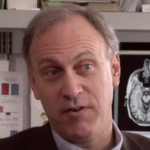
Ken Paller
Northwestern University
USA

Penelope Lewis
University of Cardiff
United Kingdom
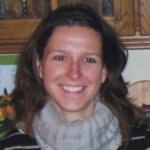
Susanne Diekelmann
University of Tuebingen
Germany
103.2 Role of adult-born hippocampal neurons in learning and memory
Chair: Nora Abrous
The discovery of a continuous renewal of neurons in the adult mammalian brain has been a long process. After two decades of extensive research, the existence of adult neurogenesis (ANg) in the dentate gyrus of the hippocampus is definitely proven. Accumulating evidence indicates that there is a bidirectional relationship between memory and ANg: how and to which extent learning modifies new neurons connectivity, when new neurons contribute to memory and to which memory processes, how alterations of ANg by early life stress determine age-related memory decline, are extensively debated questions. This symposium will concentrate on the role of ANg in the physiology and physiopathology of memory by bringing together recent advances in this field.

Nora Abrous
French National Institute Health and Medical Research
France
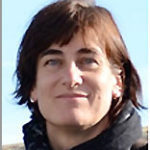
Muriel Koehl
French National Institute of Health and Medical Research
France

Luisa Pinto
Life and Health Sciences Research Institute
Portugal

Matthew Shtrahman
University of California, San Diego
USA
103.3 Modulating memory traces in healthy and maladaptive states
Chair: Steve Ramirez

Steve Ramirez
Harvard University
USA

Asim Rashid
University of Toronto
Canada

Christine Ann Denny
Columbia University
USA

Brian Wiltgen
UC Davis
USA
103.4 Nucleus reuniens of the thalamus: Behavioral relevance and physiology at the nexus of a hippocampus and medial prefrontal cortex memory circuit
Chair: Timothy Allen

Timothy Allen
Florida International University
USA
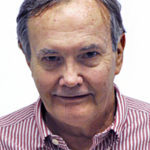
Robert Vertes
Florida Atlantic University
USA

Amy Griffin
University of Delaware
USA

Hiroshi Ito
Max Planck Institute for Brain Research
Germany
103.5 Pattern Separation across the Lifespan
Chair: Nora Newcombe

Tracy Riggins
University of Maryland
College Park
USA

Leslie Rollins
Christopher Newport University
USA

Kelsey Canada
University of Maryland,
College Park
USA

Zoe Ngo
Temple University
USA
Wednesday April 18, 2018 (2:30 PM - 4:30 PM)
105.1 Representations of space and experience in the hippocampal/entorhinal circuit
Chair: Jill Leutgeb

Mayank Mehta
UC Los Angeles
USA

Lisa Giocomo
Stanford University
USA

David Foster
UC Berkeley
USA

Stefan Leutgeb
UC San Diego
USA
105.2 Learning representations of event and reward structures
Chair: Ida Momennejad

Ida Momennejad
Princeton University
USA

Lila Davachi
New York University
USA

Dare Baldwin
University of Oregon
USA
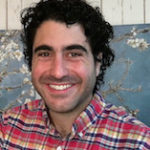
Christopher Baldassano
Princeton University
USA
105.3 Mechanisms of extinction for drug seeking and fear-based memories
Chair: Ryan LaLumiere

Ryan LaLumiere
University of Iowa
USA

Gavan McNally
University of New South Wales
Australia

Matt Lattal
Oregon Health Sciences University
USA

Christa McIntyre
University of Texas Dallas
USA
105.4 Human intracranial recordings and stimulation for probing episodic memory circuits
Chair: Bryan Strange

Bryan Strange
Universidad Politecnica de Madrid
Spain

Nikolai Axmacher
Ruhr University
Germany

Kareem Zaghloul
National Institutes of Health
USA

Emily Mankin
UC Los Angeles
USA
105.5 Neural paths for the hippocampal memory system to influence behavior
Chair: Miriam Meister

Miriam Meister
University of Washington
USA

Shantanu Jadhav
Brandeis University
USA

Jennifer Ryan
Rotman Research Institute
Canada

Sheri Mizumori
University of Washington
USA
Thursday April 19, 2018 (10:30 AM - 12:30 PM)
203.1 The other EC: New findings about neural representations in the lateral entorhinal cortex
Chair: James Knierim

James Knierim
Johns Hopkins University
USA

Albert Tsao
Stanford University
USA

Kaori Takehara-Nishiuchi
University of Toronto
Canada
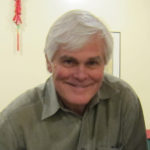
John Disterhoft
Northwestern University
USA
203.2 A sound model for cortical contributions to information in memory
Chair: Kasia Bieszczad

Kasia Bieszczad
Rutgers University
USA

Robert Liu
Emory University
USA

Max Happel
Leibnitz Institute for Neurobiology
Germany

Simon Rumpel
Johannes Gutenberg University
Germany
203.3 Human hippocampal activity in a constraining temporal context: detecting deviance or representing expected events?
Chair: Anna Jafarpour

Anna Jafarpour
University of Washington
USA
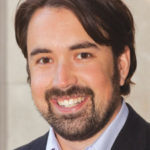
Nicholas Turk-Browne
Yale University
USA

Liang-Tien (Frank) Hsieh
UC Berkeley
USA

Athina Tzovara
University of Zurich
Switzerland
203.4 Novel role of the endocannabinoid system in stress-induced neuronal function and memory
Chair: Benno Roozendaal
Neuroscience research has shed light on the impact of stress and emotion on the brain. Recent discoveries indicate that the endocannabinoid system is playing a paramount role in governing the effects of stress and stress hormones on neuronal adaptation and plasticity underlying different physiological and behavioral functions, including learning and memory. Endocannabinoids further modulate susceptibility to stress-related psychiatric disorders, and novel drug development selectively targeting the endocannabinoid system is emerging as a promising therapeutic intervention. This symposium will provide an overview of the intriguing role of the endocannabinoid system in stress-induced changes in neuronal function and learning and memory.

Benno Roozendaal
Radboud University
The Netherlands

Patrizia Campolongo
Sapienza University
Italy

Jeffrey Tasker
Tulane University
USA

Sachin Patel
Vanderbilt University
USA
203.5 Subtle Learning and Memory Impairments in Early Prodromal Alzheimer's Disease: Behavioral Biomarkers for Future Risk
Chair: Mark Gluck

Mark Gluck
Rutgers University
USA

Karen Rodrigue
University of Texas Dallas
USA

Morgan Barense
University of Toronto
Canada

Zach Reagh
UC Davis
USA
Friday April 20, 2018 (10:30 AM - 12:30 PM)
303.1 Neuronal oscillations for memory in health and disease
Chair: Kei Igarashi

Kei Igarashi
UC Irvine
USA

Alexandra Mably
University of Texas Austin
USA
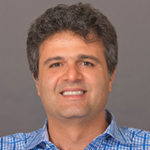
Peyman Golshani
UC Los Angeles
USA
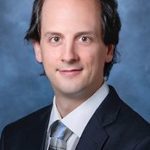
Ueli Rutishauser
Ceders-Sinai Medical Center
USA
303.2 Reflective v. Reflexive Memory System Function in Behavioral Control
Chair: Pamela Kennedy

Pamela Kennedy
UC Los Angeles
USA
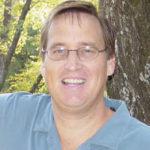
Mark Packard
Texas A&M University
USA

Kate Wassum
UC Los Angeles
USA

Kyle Smith
Dartmouth College
USA
303.3 Construction and disruption of spatial-memory networks during development
Chair: Tallie Z. Baram

Tallie Z. Baram
UC Irvine
USA

Gregory Holmes
University of Vermont
USA

Francesca Cacucci
University College London
England

Flavio Donato
Kavli Institute for Systems Neuroscience
Norway
303.4 Sleep and the (re)processing of memory
Chair: Francesco Battaglia, Lisa Genzel

Francesco Battaglia
Radboud University, Nijmegan
The Netherlands

Lisa Genzel
Radboud University, Nijmegan
The Netherlands

Guang Yang
New York University
USA
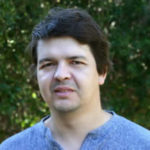
Maksim Bazhenov
UC San Diego
USA
303.5 Hippocampal-dependent memory influences energy and body weight regulation
Chair: Terry Davidson
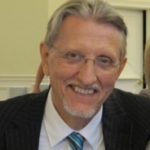
Terry Davidson
American University
USA

Marise Parent
Georgia State University
USA

Scott Kanoski
University of Southern California
USA

Naiman Khan
University of Illinois
USA
Friday April 20, 2018 (2:30 PM - 4:30 PM)
305.1 Cross-species investigations of the theta rhythm
Chairs: Elizabeth Buffalo, Laura Colgin

Elizabeth Buffalo
University of Washington
USA

Laura Colgin
University of Texas, Austin
USA

Nanthia Suthana
UC Los Angeles
USA

Matthew Shapiro
Icahn School of Medicine at Mount Sinai
USA
305.2 The dynamic interplay between detailed remembering and forgetting
Chair: Signy Sheldon

Signy Sheldon
McGill University
Canada

Brian Levine
University of Toronto
Canada

Paul Frankland
University of Toronto
Canada

Melanie Sekeres
Baylor University
USA
305.3 Memory malleability allows memory modifications: Facts, processes and consequences
Chair: Pascale Gisquet-Verrier

Pascale Gisquet-Verrier
Paris-Saclay Neuroscience Institute
France

Almut Hupbach
Lehigh University
USA

Marie Monfils
University of Texas at Austin
USA

Sunjeev Kamboj
University College London
England
305.4 Spatial navigation - a unique window into mechanisms of aging and dementia
Chair: Thomas Wolbers

Thomas Wolbers
German Center for Neurodegenerative Disease
Germany

Jennifer Bizon
University of Florida
USA

Michael Hornberger
University of East Anglia
England

Abid Hussaini
Columbia University
USA
305.5 Using Noninvasive Brain Stimulation to Modulate Learning in Humans
Chair: Jacky Au

Jacky Au
UC Irvine
USA

Vincent Clark
University of
New Mexico
USA

Marian Berryhill
University of Nevada
USA

Adam Woods
University of Florida
USA
Saturday April 21, 2018 (2:30 PM - 4:30 PM)
405.1 New perspectives on episodic memory decline - from aging to neurodegeneration
Chair: Rosanna Olsen

Rosanna Olsen
Rotman Research Institute, Baycrest
Canada

Lars Nyberg
Umea University
Sweden
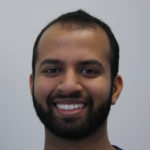
Siddharth Ramanan
University of Sydney
Australia

Donna Rose Addis
University of Auckland
New Zealand
405.2 Functional interactions of the parietal and retrosplenial cortices, subiculum and hippocampus for spatial mapping and cognition
Chair: Douglas Nitz

Douglas Nitz
UC San Diego
USA

Xiangmin Xu
UC Irvine
USA

Menno Witter
Norwegian University of Science an Technology
Norway
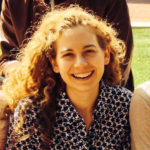
Liz Chrastil
UC Santa Barbara
USA
405.3 Development of episodic memory function
Chair: George Dragoi

George Dragoi
Yale University
USA

Simona Ghetti
UC Davis
USA

Axel Guskjolen
University of Toronto
Canada

Cristina Alberini
New York University
USA
405.4 Hippocampal memory in atypical development and atypical models
Chair: Katharine Hughes

Katharine Hughes
University of Arizona
USA

Jamie Edgin
University of Arizona
USA

Christine Gall
UC Irvine
USA

Frances Wiseman
University College London
England
405.5 The Dark Side of Memory: Pathological Persistence and Insensitivity to Consequences in Addiction
Chairs: Marcelo Wood
Learning & memory play fundamental roles in drug addiction, and here we provide several perspectives on this topic. Wood will moderate. See will contextualize the history and theory behind rodent drug self-administration/relapse models, highlighting roles for oxytocin in these processes. Suto will discuss PFC engrams that promote or suppress drug seeking, using new tools for activity-defined gene expression and neurochemical profiling. Contet will discuss parasubthalamic nucleus as a node of the neuronal network activated during ethanol withdrawal. Fowler will discuss neural substrates controlling nicotine reward and aversion, and how these impact addiction, relapse, and comorbid psychiatric disorders.

Christie Fowler
UC Irvine
USA

Nobuyoshi Suto
Scripps Research Institute
USA

Candice Contet
Scripps Research Institute
USA

Ronald See
Westmont College
USA
Sunday April 22, 2018 (10:30 AM - 12:30 PM)
503.1 Mechanisms of memory flexibility
Chair: Marijn Kroes

Marijn Kroes
Radboud University Nijmegen Medical Center
The Netherlands

Catherine Hartley
New York University
USA

Anna Schapiro
Harvard University
USA

Blake Richards
University of Toronto
Canada
503.4 Hippocampal Dysfunction in Schizophrenia
Chair: Theo van Erp

Theo van Erp
UC Irvine
USA

Carol Tamminga
UT Southwestern
USA

J. Daniel Ragland
UC Davis
USA

Adrienne Lahti
University of Alabama Birmingham
USA
503.3 Maximizing the Impact of Cognitive Interventions
Chairs: Carla Strickland-Hughes, Rachel Wu
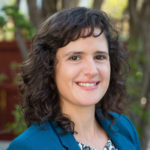
Carla Strickland-Hughes
University of the Pacific
USA

Aaron Seitz
UC Riverside
USA

Susanne Jaeggi
UC Irvine
USA

Rachel Wu
UC Riverside
USA
503.4 In Search of Lost Time: Memory Engram Formation and Function
Chair: Tomás Ryan

Tomás Ryan
Trinity College Dublin
Ireland

Takashi Kitamura
UT Southwestern
USA

Kiriana Cowansage
UC San Diego
USA

Eisuke Koya
University of Sussex
United Kingdom
503.5 Rethinking content-based parcellation of the medial temporal lobe
Chairs: Sara Burke, Lee Ryan

Sara Burke
University of Florida
USA

Lee Ryan
University of Arizona
USA

Victoria Heimer-McGinn
Brown University
USA

Cyriel Pennartz
University of Amsterdam
The Netherlands
